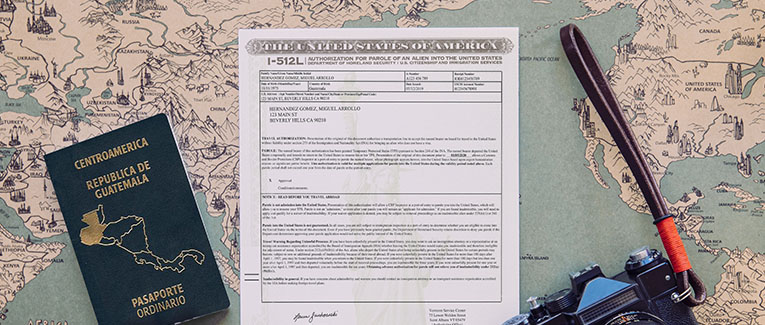
Most aliens need Advance Parole to re-enter the U.S. after traveling abroad and have pending applications for immigration benefits or for changes in their nonimmigrant status.
Any adjustment of status applicant who leaves the U.S. without Advance Parole is automatically considered abandoning his/her application for an adjustment of status. Such a person will generally not be allowed back in the U.S. The person would have to do consular processing while remaining out of the U.S. This applies for people traveling to any place outside the U.S., even going to Canada (even Canadian Niagara Falls), Mexico, or places like the Bahamas.
You must apply for Advance Parole before leaving the U.S. If you depart from the U.S. or attempt to enter the U.S. before a decision is made on the application, your application will be considered abandoned.
Exceptions:
- H, L, V, or K3/K4 nonimmigrants:
If you are in one of the following nonimmigrant visa categories, and if you continue to maintain your status, you may travel on a valid visa while the I-485 is pending without obtaining an Advance Parole. Upon returning to the U.S., you must present your valid H, L, K, or V nonimmigrant visa and continue to remain eligible for that status.- H-1 (temporary worker) or H-4 (spouse or child of a H-1)
- L-1 (intra company transferee) or L-2 (spouse or child of a L-1)
- K-3 spouse or K-4 child of a US citizen
- V-2 spouse or V-3 child of a lawful permanent resident
Read EAD/Advance Parole vs. H/L - H-1 (temporary worker) or H-4 (spouse or child of a H-1)
- Refugees and Asylees:
If you were admitted as a refugee or granted asylum and are applying for an adjustment of status one year after that, you can travel outside the U.S. on a valid refugee travel document and don’t have to apply for Advance Parole.

